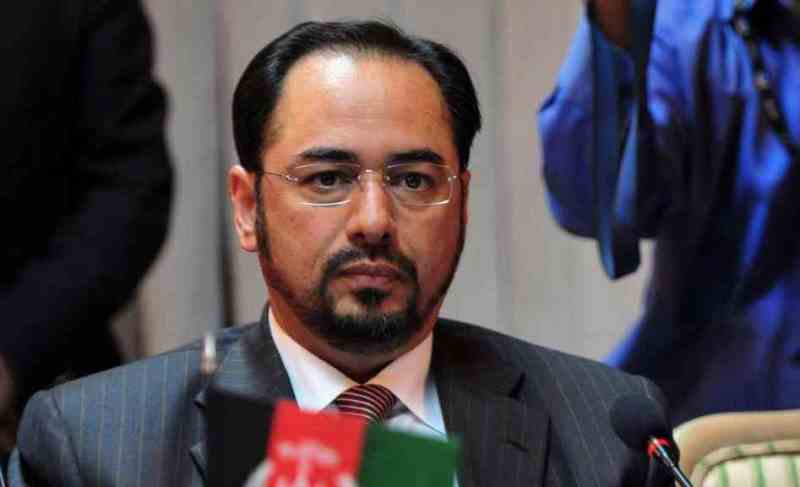Salahuddin Rabbani, the Foreign Minister of Afghanistan and the leader of Jamyat-e-Islami party, on the death-anniversary of former Mojahedin Figure Mustafa Kazemi, said that the current conflicts in the government is the result of current power sharing set up among Afghanistan’s leaders. He also stated that the current centralized-political system requires to be transformed.
Rabbani also said: “We have been recently aware of the intense disagreements within the National Unity Government (NUG) leaders, which is inappropriate in this sensitive period of time. This is due to the implementation of centralized-governmental system.” At the same time, General Abdul Rashid Dostom, Vice President of Afghanistan, also said in a statement: “Election of National Assembly, Districts Councils will help us call the Loya Jirga to modify the current constitution through replacement of the current political system.”
Comment:
The discussion over transformation of the government from centralized into non-centralized system has come to surface after the fact that dissention has become intensified among Afghan leaders day after day. Recently, the conflict has emerged among President Ghani and his vice president, General Dustom. General Dustom, accused President Ghani and CEO Dr Abdullah of encouraging ethnic divisions. In addition, Ahmad Zia Masood, the president’s Special Representative on Good Governance expressed his extreme disappointment regarding the president’s tribal policy. A month ago, disagreement flared among the president and the CEO. Later resolved the conflict temporarily in the wake of Brussel Conference on Afghanistan; however, their disagreement has resurfaced over political issues.
The dissension and disagreement among authorities exposes existence of divisions in the government which have been engineered by Americans. The fact is that America has been encouraging ethnic differences ever since its presence in Afghanistan after the fall of Taleban in late 2001. United States has created divisions among people of Afghanistan on the basis of ethnicity, race and religion. However, it is obvious that America turned the results of 2014 election into a government modeled on ethnic orientations, started fire of discords among people. As a result a government was established which has been a sheer example of failure.
This is because John Kerry had engineered the 2014 Afghan election against the political and social realities of Afghanistan dividing the power on a fifty –fifty basis between two main election contenders. This government does not fit in any workable system of government. It is not neither a coalition government, not a unity government. Rather, this is a division of power between two competing gangs made of a handful of people. This government resembles a Capitalist joint-stock company. Thus, the division of government based on 50-50 is in fact a grave deception supervised by USA.
Therefore, the root of divisions in the government is because power sharing set up and ambiguous divisions of power among two persons in Afghanistan. As long as such government exists, conflict and dissension are its inevitable outcomes. Flames of racial discrimination will last as long as the so called NUG exists and as long as USA and its Western allies remain in Afghanistan.
It is a matter of that the power sharing agreement in the NUG has ambiguous clauses that leaves the possibility of divisions at any point of time. This will give USA a leverage on Afghan leaders to manipulate them, and drive them in the direction it wants in consideration of interests in Afghanistan and the region. The term National Unity Government has turned into a disrespected term in the political literature of the world.
The issue of changing the system is something being raised by political parties and official authorities in order to break the dominance of power and centralization of power in the hands of President (and in certain cases CEO as well). However, both centralized and non-centralized governments are the two faces of democratic system, and can never be the problem solvers.
Ethnic-oriented policies by the President suggest that he focuses to recruiting secular and westernized Pashtuns for high-profile government positions and removing ethnic Tajiks, as well as Mujahedin leaders and the Islamist elements from key government positions. The process of Pashtunizing the government by bringing in secular ethnic Pashtuns is a step by step process. At first Islamist Pashtuns will be accommodated in the government as suggested by Government Peace Agreement with Hezb-e Islami led by former Mojahedin Leader Golbodin Hekmatyar. Afterwards, he would gradually discharge Islam oriented Pashtuns and would bring new fully secular generation of Pashtuns into key government positions. This ethical policy of president has caused uproar among high-level ethinck Tajik officials.
It is important to realize that officials do not clash alone, but rather they engage the people and their followers in such corrupt struggles. They use people as means of their ethnical policies which will cause discords and dissensions among populations.
The realization of this issue is vitally important for Muslim and Mujahed people of Afghanistan in order to not get involved in such divisions (nefaq) by making their efforts and using energy for sustaining the interests of tyrant and deceptive rulers. These rulers do not adhere to commandments of Islam, rather they receive the commands from USA and Europe, govern on behalf of them and ensure their interests.
Therefore, Hizb ut Tahrir invites people to work to uproot the colonialists, which are the real cause of adversity and the discords in our territory. We must get rid of these tyrant rulers and by standing together with Hizb ut Tahrir for the purpose of establishing the Caliphate based on the method of Prophethood. Muslims must work hard toward establishment of divine-ruling system and to become frontrunners (Sabeqoon Awaleen) in this way.
Saifullah Mustanir
Director of Media Office of Hizb ut Tahrir in Wilayah Afghanistan


What is the relationship like between Hizbut Tahrir and the Taliban? I have a feeling that these two groups will make a good match for each other. The Taliban also wants the oppressors, tyrants, invaders and colonialists out of our lands and eventual establishment of a caliphate under shariia.